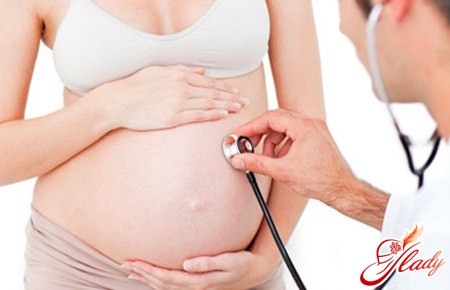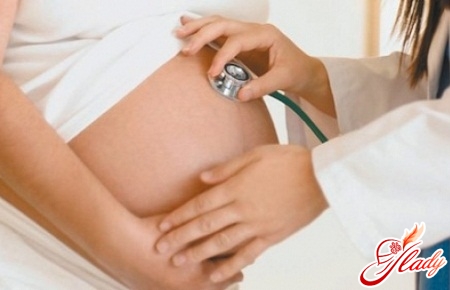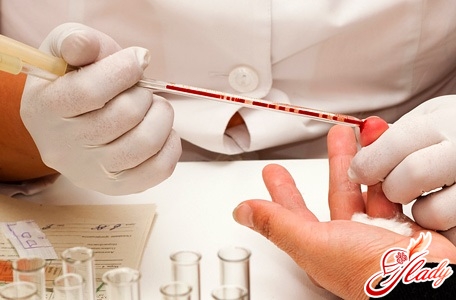 Hepatitis C and pregnancy is one ofurgent problems today. Unfortunately, very often a woman learns that she is infected with hepatitis C during pregnancy. And this is no accident - after all, it is during pregnancy that all women without exception undergo thorough screening for the presence of various infections, including hepatitis C. Medical statistics show that approximately every twentieth pregnant woman is diagnosed with hepatitis C. Of course, upon learning about this, the expectant mother is upset, and sometimes very scared. And doctors, alas, do not always give the mother comprehensive information. And, of course, a lot of questions arise - after all, it is not only about the mother's health, but also about the health of the baby.
Hepatitis C and pregnancy is one ofurgent problems today. Unfortunately, very often a woman learns that she is infected with hepatitis C during pregnancy. And this is no accident - after all, it is during pregnancy that all women without exception undergo thorough screening for the presence of various infections, including hepatitis C. Medical statistics show that approximately every twentieth pregnant woman is diagnosed with hepatitis C. Of course, upon learning about this, the expectant mother is upset, and sometimes very scared. And doctors, alas, do not always give the mother comprehensive information. And, of course, a lot of questions arise - after all, it is not only about the mother's health, but also about the health of the baby.
How does the presence of the virus affect the course of pregnancy?
I would like to immediately reassure future mothers –The presence of the hepatitis C virus in the body does not have any negative impact on the course of pregnancy and the development of the baby. Moreover, as a rule, the progression of the disease is suspended during pregnancy. For example, liver function tests return to normal in the second trimester of pregnancy. Pregnancy and hepatitis C are quite compatible. However, of course, after the birth of the baby, the disease begins to progress rapidly again. Moreover, it is worth noting the fact that doctors do not consider the presence of the hepatitis C virus in a woman's body a contraindication to pregnancy and childbirth. Even if a woman knows about her disease in advance, she can become pregnant and give birth to a baby. As mentioned above, the virus in no way affects either the process of conception or the bearing and birth of a child. Of course, you can hear a very large number of different horror stories, but you should not take them too seriously. Of course, women infected with hepatitis will have to take certain precautions and perhaps visit their gynecologist a little more often, but, in general, pregnancy usually ends quite well. In any case, medicine is not aware of cases of the birth of green polka-dotted babies.
Threat of infection of the child
Another question that is quite strongworries expectant mothers - what is the probability that the baby will become infected during pregnancy. In principle, such a risk does exist. However, it is not that great - it fluctuates between 3 - 10%. On average, this probability is five percent, which is a very low figure. However, this probability does exist. Therefore, we cannot help but talk about how exactly the virus can be transmitted from mother to child. In principle, there are only three ways of transmitting the infection:
- Intranatally
This group includes all cases of infection,which occur during the birth itself. This can happen due to the mother's blood getting into the baby's body. Fortunately, this happens very rarely. But during pregnancy, there are practically no cases of infection.
- Prenatal and postnatal
This method applies to all casesinfections that occur during breastfeeding and caring for the baby. In principle, if the mother knows and follows the simplest preventive measures, the probability of the baby becoming infected is also very, very low.
Treatment of hepatitis C during pregnancy
The main pharmacological drugs,which are used to treat a disease such as hepatitis C are ribavirin and interferon-α. However, numerous studies have reliably established the fact that their effect on the child's body is very negative. And therefore, doctors during pregnancy strongly recommend stopping treatment for hepatitis C for the period of bearing a child. However, in some cases, doctors still have to intervene and prescribe a course of treatment for the expectant mother. As a rule, such measures have to be resorted to if the expectant mother has pronounced signs of cholestasis. Her health in such a case worsens, and it cannot be ignored. Although this happens extremely rarely - only in one case out of 20. Most often, in this case, doctors prescribe those drugs that do not harm the development and health of the future baby. As a rule, such treatment is a course of injections of drugs that basically contain ursodeoxycholic acid. However, it goes without saying that in each specific case, the doctor selects treatment strictly on an individual basis, taking into account all the individual characteristics of the expectant mother's body.
Method of delivery in hepatitis C
Doctors have long been keeping a kind of statistics ofhow methods of delivery affect the likelihood of the baby becoming infected with the hepatitis C virus. However, it was not possible to obtain unambiguous results - in principle, the probability of infection is approximately the same with natural delivery and with a cesarean section. However, if a woman has poor liver function tests, in some cases doctors may insist on performing a cesarean section. As a rule, this situation occurs in about one out of fifteen cases. In all the rest, doctors decide on the method of delivery based on the general health condition. Also, many pregnant women worry that they will have to give birth in infectious maternity hospitals. However, this is not always the case - most often they give birth with everyone else on a general basis, in ordinary maternity hospitals.
Breast-feeding
Sometimes women infected with hepatitis Crefuse to breastfeed, mistakenly believing that by doing so they increase the risk of infecting the baby. However, this is not true at all - the concentration of the hepatitis C virus in breast milk is so small that a woman is unlikely to infect a child. And all those cases of hepatitis C infection that occur during breastfeeding occur due to the fact that the mother's blood enters the baby's body. You may be surprised - how can this happen? It's very simple! Surely, all mothers know what cracked nipples are. After all, even with minor microtraumas of the nipples during feeding, a small amount of blood gets into the baby's mouth. And if the baby's mucous membrane has microtraumas, there is a risk of infection of the child. And the higher the mother's viral load, the higher the risk of infection.
The child has antibodies to the virus. What to do?
As a rule, all children born to mothers withhepatitis C, are examined immediately after birth. And, most often, antibodies to hepatitis C are found in the blood serum. However, you should not immediately despair and panic - in almost all such cases, these antibodies enter the child's body from the mother's body, with the bloodstream, through the placenta. As a rule, these antibodies disappear without a trace by the end of the first year of the child's life, but in very rare cases they can persist for a longer time - up to two years. However, this does not mean that parents should simply forget about this problem - repeated tests must be taken every three months so that doctors can make sure that everything is in order.
Vaccination against hepatitis B and pregnancy
When talking about hepatitis C, one cannot help but mentionsuch a problem as hepatitis B and pregnancy. Unfortunately, no woman is immune from this disease. Strictly speaking, the risk of infecting the child even in this case is not too high, so do not panic. Although, of course, the expectant mother needs intensive medical treatment, often hospitalization is required. Very often, the expectant mother hears the advice to get a preventive vaccination against hepatitis B. However, doctors are very, very skeptical about this recommendation - after all, the influence of antigens on the developing body of the baby is not complete. That is why they do not recommend exposing the baby to unjustified risk. The only case when vaccination against hepatitis B is justified is a really high risk of infection of a pregnant woman. For example, a woman found herself in the center of an epidemic of this disease. Then, of course, the expectant mother should still take precautions. However, pay attention to the fact that if a woman got vaccinated without yet knowing about her pregnancy, there is no need to worry, and even more so to terminate the pregnancy - there is practically no risk to the child. And during breastfeeding, you can get vaccinated without any fear. In any case, if the expectant mother encounters a disease such as hepatitis, she should never self-medicate. The first and most important thing she should do is seek medical help from a doctor. The doctor will be able to assess the potential danger to the baby and give the expectant mother the necessary recommendations. We recommend reading:









